Collaborative training for seed potato inspectors aimed at boosting potato production in Kenya
Potato is Kenya’s second most important staple crop after maize, that contributes immensely to the food security and income of smallholder farmers. Despite its importance, crop yields range from 7 to 10 tonnes per hectare against a potential of over 40 tonnes per hectare. Many reasons are cited to explain this low yields. These include; inadequate quality seed of suitable varieties, seed recycling, low soil fertility, use of agro-chemicals, pests and diseases.
Together with KEPHIS, the Netherlands Embassy organized a training on Seed Potato certification field identification of potato viral diseases. Jaap Moesker, Field Inspector with NAK from the Netherlands, came to Nakuru (Kenya) and shared his expert knowledge with KEPHIS staff and the private sector, which was represented by seed multiplication companies.
One of the key challenges in Kenya's potato subsector is access to certified seeds. Certified seeds are essential for ensuring high-quality and productive potato crops. They are disease-free, genetically pure, and have been tested for specific characteristics. Using uncertified or low-quality seeds can result in lower yields and quality, impacting the income and food security of farmers. Out of an estimated 800,000 smallholder farmers in Kenya, only 10% have access to certified seed. This shortage is caused by various factors, including inadequate production and distribution systems, as well as insufficient investments in the seed industry.
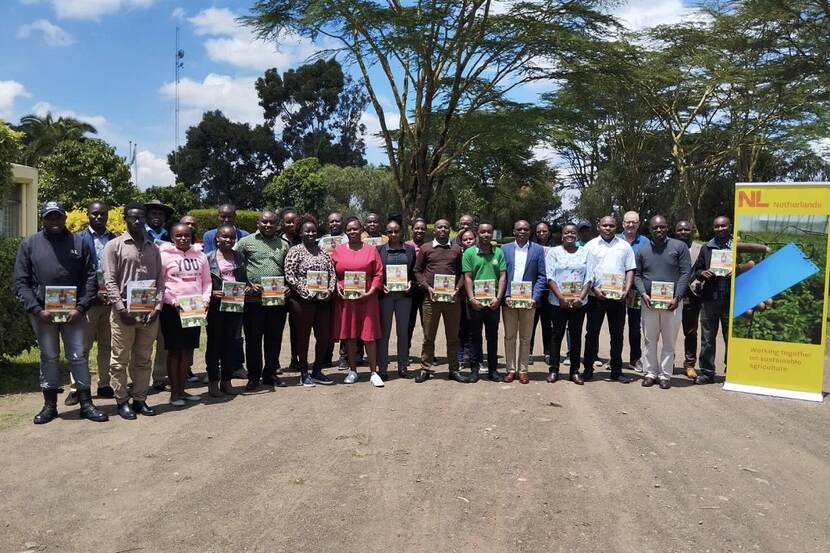
Addressing these challenges through a combination of agricultural practices, collaboration with sector experts, and policies can help unlock the full potential of this key subsector. Access to certified seeds requires a multistakeholder approach that includes government and non-governmental institutions, and private sector. One of Kenya’s key partners in the agriculture sector is The Kingdom of The Netherlands. The collaboration between these governments in agriculture is part of a broader effort to promote sustainable development and economic growth in Kenya while leveraging Dutch expertise and technology. This partnership is mutually beneficial, as Kenya gains access to advanced agricultural practices, and the Netherlands benefits from investment opportunities in the Kenyan agricultural sector through trade. It also contributes to the United Nations' Sustainable Development Goals, particularly those related to ending hunger, achieving food security, promoting sustainable agriculture, and strengthening partnerships for development.
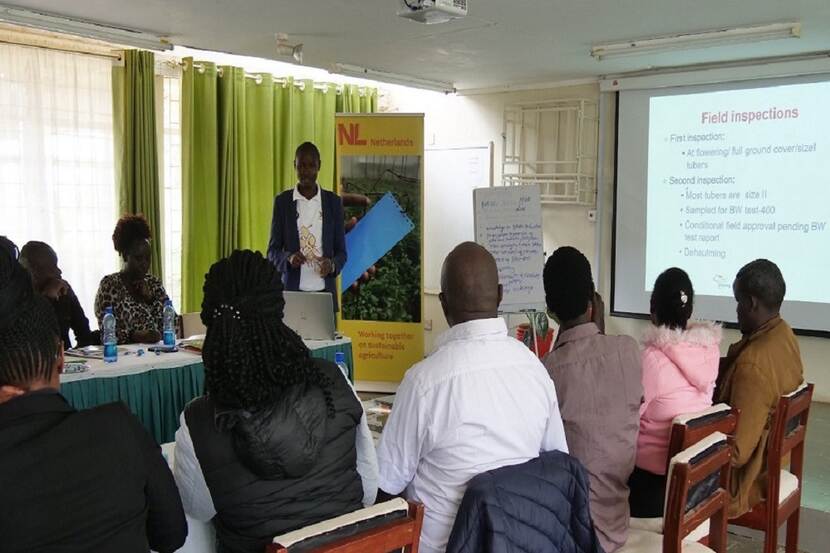
It is on this background that the Kenyan Government through Kenya Plant Health Inspectorate services (KEPHIS) whose mandate is to assure the quality of agricultural inputs and produce, collaborated with the Dutch General Inspection Service for Agricultural Seeds and Seed Potatoes (NAK) through the Embassy of The Kingdom of The Netherlands to provide training on seed potato production and management to a team of inspectors from KEPHIS and private sector.
According to Jaap Moesker ; Seed potato expert- NAK, In the Netherlands, European laws demand that before marketing, all seed potatoes are officially inspected and certified. There is zero tolerance on the use of uncertified seeds. 99% of different potato varieties available to farmers in Netherlands are certified, which has led the country positioning itself as a leading potato seed producer globally.
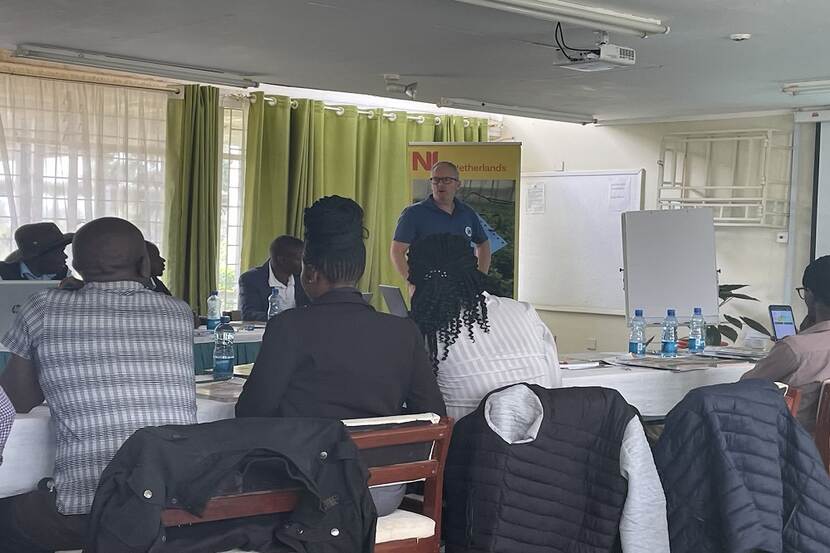
“As an institution mandated to implement sanitary and phytosanitary roles, capacity building inspectors to ensure that they understand what KEPHIS expects is important. As a country, we need to bridge the advancement gaps we have in the potato subsector, hence collaborating with the Embassy of the Kingdom of The Netherlands to empower our stakeholders is also in line with the government’s transformation agenda. Therefore, there is need to bring actors together, to ensure that all our initiatives align to this agenda.” - Geoffrey Malemba, Deputy Director KEPHIS - Nakuru Branch
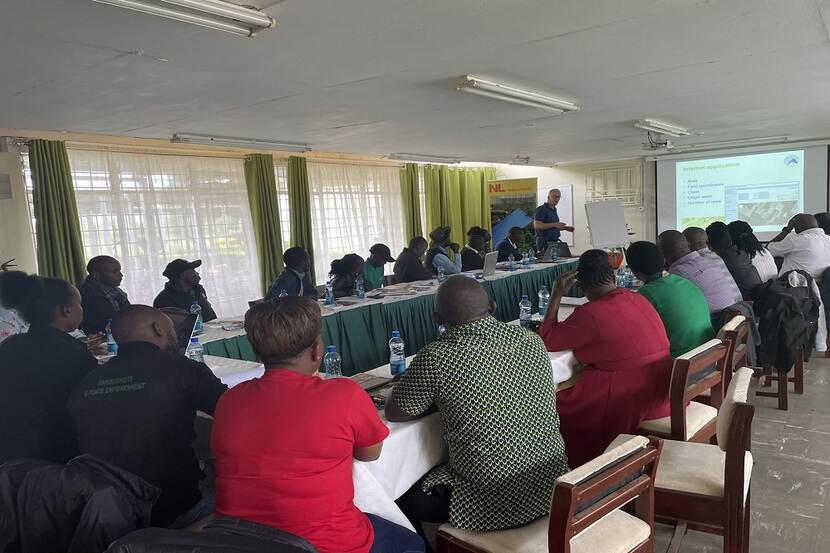
The inspectors underwent technical training, both theoretically and practically, on potato seed production processes, identification, and management of pest and diseases. Jaap noted that the technical requirements and processes for seed inspection are similar in both countries but there are some differences too. “In the Netherlands, inspectors are specialized per crop, whereas in Kenya, the inspectors have different crops to inspect, making it manageable for inspectors in the Netherlands in comparison to those in Kenya. Also, an inspector can only visit one farm in a day, to reduce the risk of spreading diseases from one farm to another in the Netherlands, but in Kenya, Inspectors may visit several farms.The Netherlands has embraced technology in monitoring potato seed multiplication farms, where they are able to log real time data while inspecting farms. This makes it easier in data collection.” There are however areas that can be easily addressed, especially on use protective wear, that ensures farm hygiene measures are adhered to.Normally, Inspectors are expected to always wear recommended safety gear such as boots, and ensure that they are disinfected from one farm to another. According to Jaap, this is an issue of enforcement that must be addressed, otherwise, the challenges will continue to persist.

The inspectors visited Fresh Crop Limited in Mau Narok, for practical training on identification and management of pest and diseases, and grading of potato seeds. Stella Maris Ndinda; Senior Inspection Officer, KEPHIS Nakuru, noted that her experience on potato seed inspection has been continually enhanced through these collaborative trainings. In addition, KEPHIS has gone further and licensed private potato seed inspectors, who are helping to bridge the capacity gap, due to the expansive and diverse potato growing regions, where unlike in the Netherlands where they are primarily in a central region, in Kenya, potato growing regions vary, hence the manpower requirements also need to be enhanced.
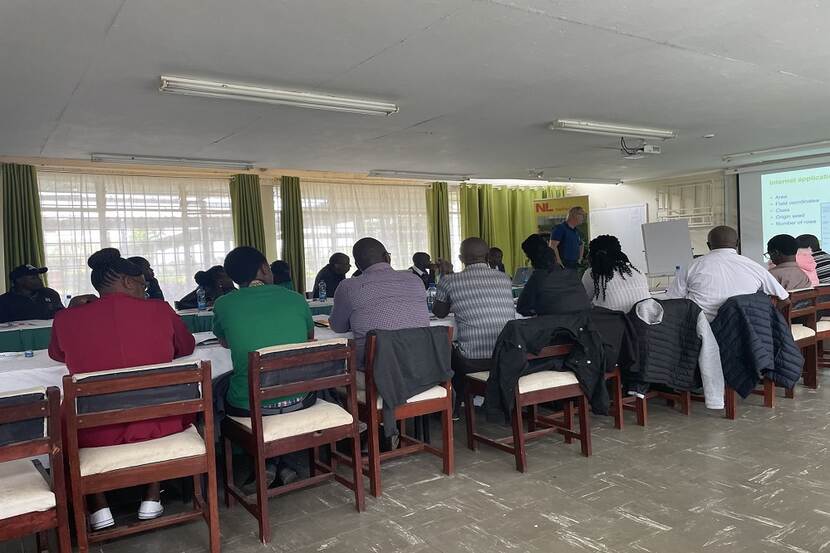
Ultimately, the goal is to improve crop production and food security by ensuring that farmers have access to high-quality seed materials. It is also a vital part of sustainable agricultural practices, ensuring that farmers can consistently grow healthy and productive crops.
As the Potato Sector continues to take shape, The Kingdom of The Netherlands is committed to collaborating with Kenya towards strengthening the potato sub-sector, especially in access to certified seed. So far, the Netherlands has introduced over 34 new seed varieties in Kenya. The goal of this collaboration is to support in helping farmers to optimize production per hectare, increase their yields, incomes, address food security, and eventually enhance trade opportunities for both countries.
For more information about this sector or any other agricultural questions feel free to contact us via nai-lnv@minbuza.nl. For the latest updates on activities, new articles and more follow us on X (Twitter) on @NLAgiKenya and subscribe to our newsletter by sending us an email. In case of any non-agriculture questions for the Netherlands Embassy in Nairobi, see this website for contact information